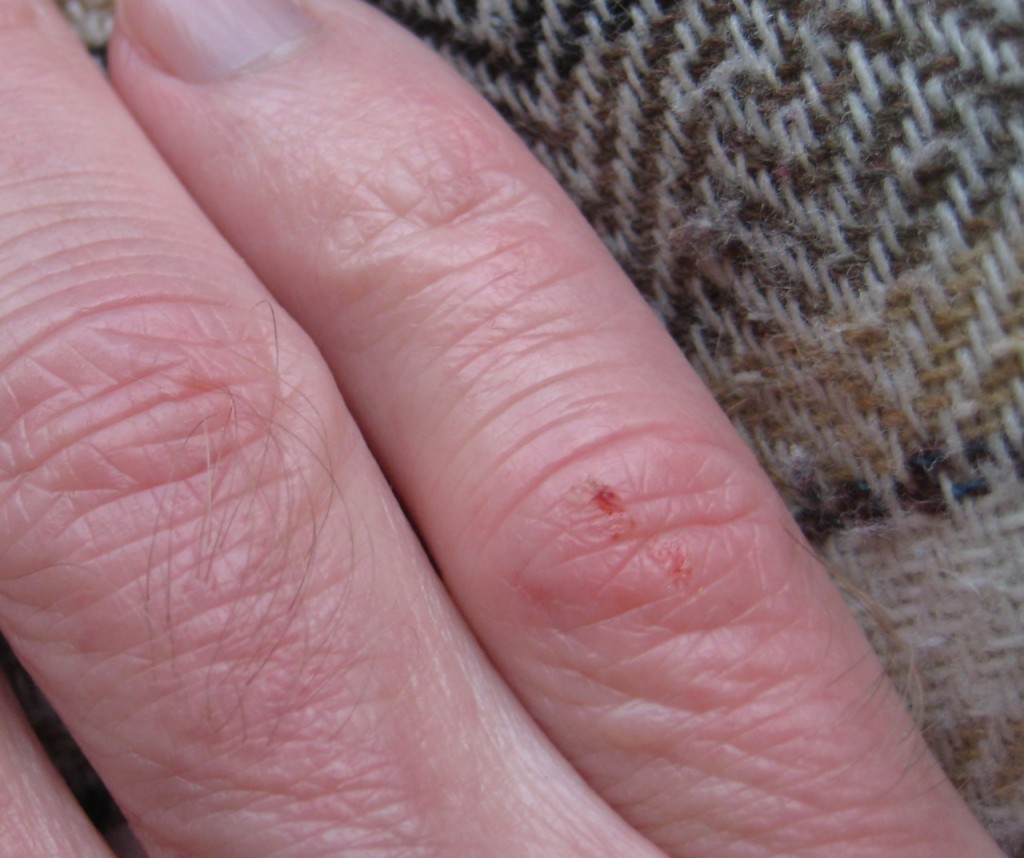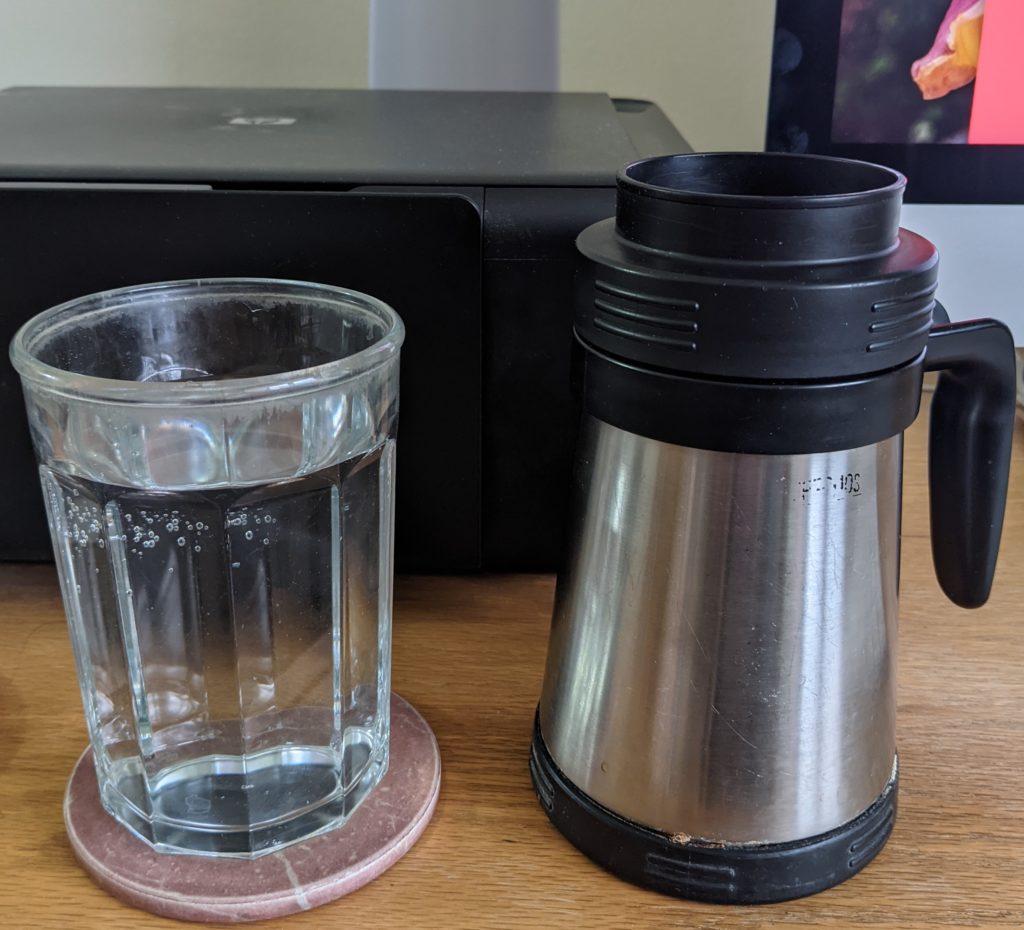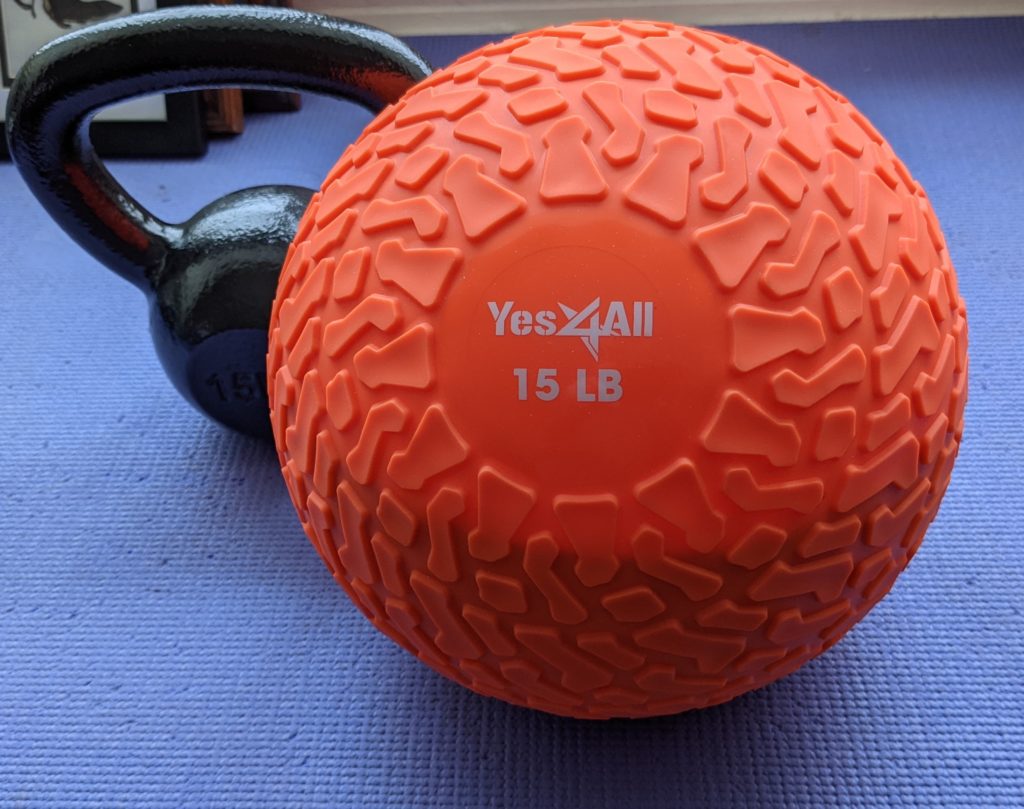If you live in Illinois, and care about vulnerable people, consider signing this petition for mask mandates in healthcare facilities: https://chng.it/WdnkRXGkXx
Tag: health
2024-03-15 12:41
In histories of the period before modern medicine, people were often “sickly” in some fashion or another.
That’s been much less true the past hundred years or so. With a few exceptions (terrible accidents, horrific war injuries), if whatever you had didn’t kill you, you probably got entirely better.
Since I first heard of Long Covid, I’ve been expecting a return to the historical norm.
Looks like I was right:
A total of 17.6% of American adults have ever experienced long Covid symptoms, the survey found.
Source: The Guardian
Finally recovered, I think
Back at the end of September I came down with West Nile Fever, which made me pretty sick for a long time. The only time in my life before I was that sick for that long was when I had Mononucleosis when I was a freshman in college. That time I was sick for most of the term, and it took several weeks of the Christmas vacation to fully recover.
With West Nile it took about three weeks to recover from the acute phase of the illness. That is, I had a fever constantly for three weeks. Then it took another three weeks to get my energy levels back. For that period I could walk the dog, fix breakfast, and then do one thing, after which I needed to go back to bed and take a nap.

As of a couple of days ago, I think I’m back to full health. I’ve been doing workouts—not as frequently as I’d like, but often enough that I’ve been able to start pushing the weights up again, although not up to what I doing before I was sick. I’ve been for a couple of runs, both of which were harder and slower than I’d like, but were okay—I didn’t feel like I was sick, just like I hadn’t been running enough the past few weeks.
On Sunday I got a Covid booster, so I felt slightly less energetic Monday, but that has already passed.
After too many weeks, I finally feel back to normal!
Sick. Mostly better. Diagnosis!
About three weeks ago I developed a fever and moderate flu-like symptoms. It felt like a virus, so I mostly just treated it liked one—sleeping extra, drinking extra fluids—and waited to get better.
It was kind of frustrating, because it just went on and on. For a brief period there in the middle of week two, it got a bit more exciting: I starting having trouble finding words. (I sounded exactly like my dad when his dementia made it impossible for him to say stuff. Pretty scary.) At about the same time I started suffering from double vision.
At the prompting of my mom and brother, I went to the emergency room for the word difficulty. They did a whole workup for a possible stroke: CT scan, chest x-ray, and and MRI.
I was not having a stroke.
Once I was released from the emergency room I made a follow-up with my regular doctor, who was kind of groping for possibilities, and put in an order for a few tests. The blood was draw on Monday, and today I got the results: positive for West Nile virus.
The related illness, West Nile Fever, does sound exactly like what I had. (That’s actually kind of a scary link. I’m pretty sure I’m not going to have any of the longer-term consequences. I was just sick for three weeks.)
Anyway, I think I’m on the mend. I’m resuming normal activity as each thing seems okay. It’s taking a while feel up to swordfighting, but I think I can finally do everything else on my usual list.
2022-08-20 09:57
You don’t have to know much about me to know that the latest video from The Bioneer on training for longevity is like catnip for me:
You will not be surprised to learn that the advice comes down to move more, move more diversely, and learn a lot. (Of course, adding diverse complex movements is learning.) But there is also specific useful advice re: power, bone density, tendon strength, etc.
On not blaming my age
I have long made it a general practice not to blame my age for any declines or limitations in my capabilities. It’s not that I don’t think my age matters. It’s just that I can’t do anything about my age, so blaming it doesn’t seem useful.
I now realize that I’ve been enabled in this by the fact that I spent my 20s, 30s, and 40s as a sedentary office worker. I did “exercise” some, but not a lot, and not very effectively.
The result of that was that when I finally started making exercise a priority in 2008, I was improving my fitness from a pretty low level. That meant that all through my 50s I was able to report, pretty much every year, that I was in the best shape of my life. (It was in 2014, when I was about 55, that I initially reported that I was getting enough exercise. A year and a half later I wrote this somewhat smug post on the myth of age-related illnesses of middle age. (I tried pretty hard not to be too smug about becoming fitter all through my 50s. Smugness is never very attractive, and it definitely doesn’t age well. I think that post holds up okay as being not so excessively smug.)
Looking back on it, I think my conclusions were the result of having a pretty skewed picture of what sorts of improvements in physical capability can be expected in an “older” person, based on have started from such a low base. Based on my experience these last two years, I’m beginning to think that I’ve made about as much progress as I can expect to make.

That’s not definitely true. I continue to exercise. I continue to seek out new modalities of exercise. Maybe one of those will yet do great things for my physical capabilities. And it’s still true that I’m in the best shape of my life. But for the first time in a decade, I’m not in better shape than I was a year ago.
Still, I think I’ll hold off on blaming my age, at least for a while yet.
2022-02-07 06:37
“For both the elderly and people between 40 and 59, severe illness and death were notably lower among the boosted than the merely vaccinated.” — NYT
What about people over 59 but not elderly? How did they do?
2022-01-25 19:09
“The research team discovered that 35 days of continuous exercise improved learning and memory deficits in the aging animals.”
Source: Optimal levels of exercise reverse cognitive decline in mice
I’m afraid I’m not up for 35 days of continuous exercise. Probably not even 35 hours.
Stepwise changes with aging
When I was a kid or a teenager, my skin would heal from minor scratches almost immediately. A scratch (like from walking through brambles, which I did all the time) would heal up in maybe a day and a half or two days. Then, sort of all at once, when I was about 24 or 25, suddenly it took twice as long. I noticed it when I was living in Utah and hiked a lot in the mountains and deserts, and would get similar scratches, which would now take three or four days to heal.
I figured I was just getting old, and it would just keep getting worse. But it did not. Instead, it stayed like that for thirty-five years. However, just in the past year or two—since I reached my 60s—I’ve observed a fresh doubling in wound-healing times. Now a minor scratch takes a week to heal.
The surprise here is not that the speed of healing declines as one gets older, but the weird stepwise nature of the change—stability for decades, and then an abrupt doubling in time to heal.
I don’t know if that will continue. Maybe I’ll continue to heal at this rate until I’m 105 or so?
I’ve documented this largely for my brother, who once expressed appreciation for the fact that having an older brother gave him a four-year heads-up for this sort of age-related change. (I’m not sure he appreciates it as much now as he did in his 30s and 40s.)
I looked for some research studies as to whether my observation points to a more general phenomenon, but wasn’t able to find much. My brother found a study, which says in part:
The rate of epithelialisation appears to be different in older persons, but the magnitude of the delay may not be clinically important.
THOMAS, D. R. Age-Related Changes in Wound Healing. Drugs & Aging, [s. l.], v. 18, n. 8, p. 607–620, 2001. DOI 10.2165/00002512-200118080-00005.
I guess, as long as you do eventually heal up, the length of time it takes is “not clinically important,” but it’s still kind of a drag to be wounded for week(s).

Fasting
Fasting is very much in the forefront of the kooky part of the health/wellness/fitness world that has me snake-fascinated. I’m convinced by the basic logic that our physiology functions best when we alternate between fed and fasted states, and functions poorly when we are always in a fed state.
As I write this, I’m approaching the end of a three-day fast. I did similar fasts in 2018 and 2019. This is actually my 2020 fast, slipped to early 2021 because I’d hesitated to do a fast during a pandemic. The pandemic isn’t over, but with 11 months of experience at dealing with it, I knew I could just arrange my schedule such that I had virtually no contact with other people for these three days.
Kinds of fasting
There are a lot of ways to do a fast, differing primarily in how long one fasts, and also in what one consumes during the fast.
At one end of the spectrum there’s just not eating for the period between supper and breakfast, which pretty easily stretches to 12 hours for anyone who can forego a bedtime or midnight snack. That period can be extended moderately—there are people who chose to fast for 13 to 16 hours per day—or it can be extended by somewhat more—some people choose to fast for a whole day. At the other end of the spectrum there’s prolonged fasting, where people fast for multiple days.
There are names for these various protocols. Some people practice what’s called 16:8 fasting, where they fast for 16 hours out of the day and consume all the food they eat within an 8 hour window (perhaps 8:00 AM to 4:00 PM, or noon to 8:00 PM). Another is called 5:2 fasting, where people fast on two days out of a week, eating as they like on the other five.
People seem to use the term “time-restricted eating” (or time-restricted feeding, if you’re talking about lab animals) to refer to fasting protocols where the fasting/eating windows are measured in hours. There is also the term “intermittent fasting” which some people just use as a generic term to refer to fasting protocols where the fasting window is not much more than a full day. (If you fast on alternate days you’ll typically end up with 36-hour fasts, assuming that you start your fast after supper on day 1, fast on day 2, and then break your fast with breakfast on day 3.)
Beyond the numerous periods of intermittent fasting, there’s the broad category of “prolonged fasting,” which can be anything from 48 hours out to 30 days or more, although fasting for longer than a week is rarely done for health reasons, except for people who are morbidly obese.
Autophagy
I’ve become convinced that some amount of fasting is not only healthy, it is important for health. Very briefly, there’s a finely balanced system inside of each cell that monitors available energy and available amino acids. If those things are present, the cell switches into a growth pathway, and starts making proteins and organelles (whatever the cell needs at the time). If the cell is short of either energy or amino acids, it switches over into what’s called autophagy, and instead of making proteins starts breaking them down.
For many people in the modern world it has become ordinary to eat frequently enough that one rarely goes even as long as 12 hours without eating. In that circumstance, cells rarely ever switch out of the growth pathway. Autophagy never happens, and old proteins never get broken down. This leads to all sorts of problems. Clearing out those damaged proteins (and damaged organelles) is important—they’re implicated in virtually all the diseases of aging from cancer to Alzheimer’s.
The cell seems to preferentially break down damaged, mis-folded proteins and damaged organelles. (See Selective degradation of mitochondria by mitophagy.) In any case, it’s going to replace them with whatever proteins and organelles you need most at the current moment. The process will end up improving both the quality and appropriateness of your cellular machinery.
My fasting
I do a version of intermittent fasting all the time. Jackie and I eat breakfast fairly early in the morning, but then we just have one main meal of the day, usually around 2:00 PM. We got started on that because I found that eating close to bedtime was interfering with my sleep, and Jackie got frustrated that moving supper as early as I wanted meant that there was barely enough time between lunch and supper to clean up the kitchen and then prepare another meal. My proposal to just combine the two meals was met with some initial skepticism, but it has turned out to suit us very well.
In one sense, I’m doing a version of a 16:8 fast, because I fast from 3:00 PM or so until 7:00 AM the next morning. It’s not a strict fast though. I typically have cocktail hour at 4:00 PM, and I nearly always have cream in my coffee first thing when I get up in the morning. That shrinks the window in which I’m strictly fasting, but probably does it in a way that doesn’t much reduce the benefits of the fast. (For details see Fast This Way, by Dave Asprey the guy who invented Bulletproof coffee.)
Once a year though, I do a prolonged fast of at least three days. Although the research is preliminary, there’s some evidence that after three days the body goes beyond just autophagy, and starts clearing out senescent cells. That’s great, if it’s true; there’s very good evidence that clearing out senescent cells substantially improves healthspan and lifespan.

Except that I have a big cup of green tea in the morning (mainly to support my caffeine habit, also because green tea boosts autophagy and ketone production), I’m doing a water-only fast.
It hasn’t been hard. I was a little hungry the first day, felt great the second, and am now rather looking forward to breaking my fast in a few hours. But if there were some reason to extend my fast I could do it easily enough.

I made a point of getting in a hard lifting session on day two, just to let my body know that I was most definitely using those muscles, and that those proteins should be used to repair muscle and not be metabolized for energy.
